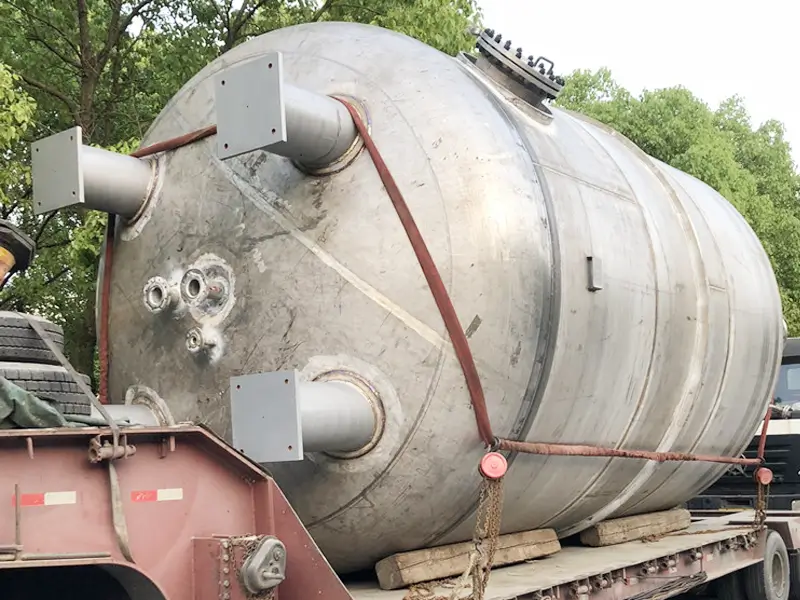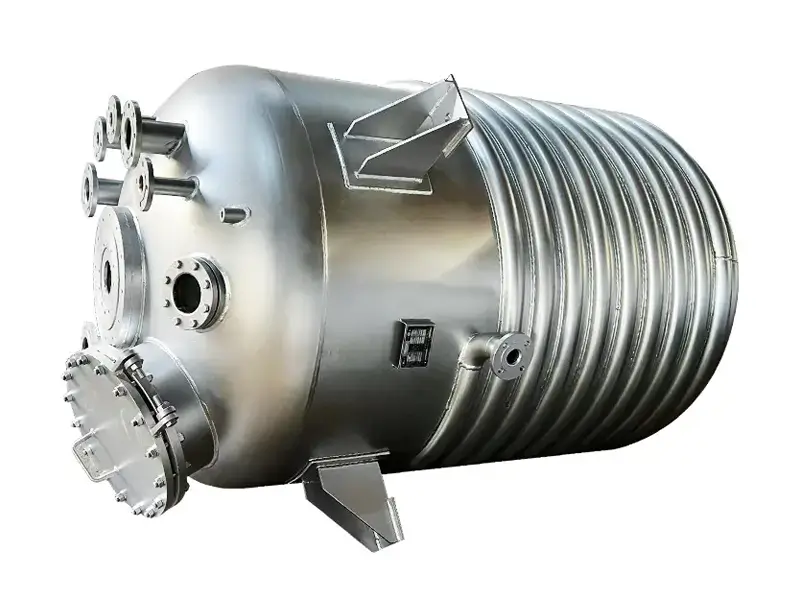Reactor Pressure Vessels are big tanks. They hold gas or liquid under strong push, called pressure. These tanks are used in power plants and other prominent places. They are strong but not perfect. Sometimes, they can get cracks. Sometimes, they can leak. Sometimes, they get too hot. These things can be terrible if not fixed. This guide will tell you what can go wrong. It will show you what causes the problems. It will tell you how to fix them safely and efficiently.
Cracks in the Metal: How They Weaken the Vessel
Reactor Pressure Vessels can get cracks after years of use. Heat and stress make small cracks grow bigger. If not fixed, they weaken the vessel. A weak vessel can break. This can cause leaks or even dangerous explosions. Cracks must be found early to keep the ship safe.

Regular inspections help find cracks before they grow. If a crack is found, it can be fixed by welding or replacing the broken part. A strong vessel design helps stop cracks from forming. Checking the metal often is very important. Small cracks are easier and cheaper to fix than big ones. Fixing cracks quickly prevents disasters.
Corrosion Damage from Rust & It Can Destroy Metal
Rust is a significant danger to metal. It eats away the surface and makes metal weak. Weak metal can crack or leak. Rust forms when metal touches water or chemicals. Vessels that hold water are at high risk. If rust is not treated, it spreads quickly and gets worse.
Using strong metals helps prevent rust. Some metals do not rust easily. Special coatings can also protect the metal from rust. Cleaning the vessel often helps stop rust from forming. Some vessels have extra protective layers to block rust. If rust is found, it must be removed right away. If ignored, it can make the boat unsafe. A rusted vessel might break without warning.
Leaks in Reactor Pressure Vessels: Why They Must Be Fixed
Leaks in a pressure vessel wastewater, gas, and energy. Leaks can also cause accidents and fires. Leaks happen when seals wear out, cracks form, or parts become loose. If a leak is not fixed, it can get worse fast. A small leak can quickly turn into a big one.
Good seals help stop leaks. Replacing old parts also helps. Sometimes leaks happen because bolts are loose or pipes are damaged. Regular inspections help find leaks early. Some leaks are too small to see. Special tests can find tiny leaks before they get worse. Fixing leaks early saves money and keeps the vessel safe.
Overpressure Problems Can Cause Bursts
A pressure vessel needs to hold a safe amount of pressure. If the pressure gets too high, the ship can break. This can cause severe damage, injuries, or even explosions.
Valves control pressure. If a valve is broken, pressure can build up too fast. A clogged pipe can also trap pressure inside. Pressure relief valves release extra pressure to keep things safe. These valves should be checked often. If a relief valve fails, the pressure will keep rising. A sudden pressure burst can be very dangerous. A strong vessel design helps keep the pressure under control. Some systems have alarms that warn about high pressure. Regular checks on valves and pipes can stop pressure problems before they start.
Heat Damage Can Make Metal Soft and Unsafe
Heat can change metal over time. When metal gets too hot, it becomes soft. Soft metal is weak and can bend or crack. Heat can also change the shape of the vessel. If this happens, the ship may become unsafe to use.
Cooling systems help control heat. Some vessels use insulation to stop heat from spreading. Over time, heat can make metal brittle. Brittle metal can break suddenly. Some vessels use special heat-resistant metals. Checking for hot spots helps find heat damage early. Regular checks are needed to make sure the heat is not causing problems. Fixing heat damage early keeps the vessel safe.
Pump Problems That Affect Pressure & Performance
A pressure vessel needs a strong pump to work well. If the pump stops working, the system loses pressure. This can slow things down or even stop the whole system. A lousy pump can also waste energy.
Checking the pump often helps keep it running well. Cleaning filters also helps. Pumps wear out over time. If a pump is weak, it may not push enough pressure. Some pumps have warning lights to show when they are failing. Fixing a broken pump quickly prevents more significant problems. A strong pump keeps the system working correctly.
Weak Welds: Cause Structural Failure
Welds hold the vessel together. If welds are weak, the ship can break. This is very dangerous. Poor welding or old metal can make welds fail. Strong welds help keep the boat safe.
Suitable welding is critical. Skilled welders make strong, safe welds. Checking welds often helps find weak spots. Welds can crack from stress and heat. If a weld is weak, it can cause leaks or breaks. Some welds need extra support to stay strong. Regular checks help find problems early. Suitable welding and regular checks keep the vessel safe.
How to Prevent Failures & Keep the Vessel Strong
The best way to prevent failures is to start with a strong design. A well-made vessel lasts longer. Regular checks help find problems early. Using good metal and strong seals also helps. Fixing minor issues quickly can stop significant failures later.
Checking for cracks, leaks, rust, and pump problems keeps a vessel safe. A well-maintained vessel works better and lasts longer. Preventing damage saves money and time. Regular maintenance is key. Minor fixes today can stop big problems tomorrow. Keeping a vessel strong means checking it often and fixing problems fast.

Get Durable Reactor Pressure Vessel Easily
If you need a big, strong tank, go to Gelan. They make tanks that can hold heat and gas. These tanks are used in labs and prominent workplaces. They are made from strong metal. They do not leak. They work for a long time. They are safe and strong. You can use them for demanding jobs.
You must check your Reactor Pressure Vessel often. If it has small cracks, fix them fast. If you wait, they can get worse. This guide helps you find the problems early. That helps keep the machine safe.
FAQs
What is a reactor pressure vessel?
It is a big, strong tank. It holds hot water or gas. Power plants use it to make energy. It must stay strong. If it breaks, it is dangerous. Factories check it often to keep it safe.
Why do these vessels fail?
They can crack, rust, or break. Too much heat makes them weak. High pressure pushes on the metal. If the metal is too weak, it can break. Factories check often to stop this.
What causes cracks?
Heat and stress can cause cracks. Weak metal cracks faster. Small cracks grow over time. If they get too big, the vessel can break. Some cracks are hard to see. Special tools help find them.
How does rust form?
Rust forms when air and water touch metal. Rust makes metal weak. Weak metal can break more easily. Rust spreads if not cleaned. Factories remove rust to keep metal strong.
Can bad design cause failure?
Yes, lousy design makes weak spots. Weak spots can crack. Cracks can break the vessel. A strong design makes the vessel last longer. Engineers pick the best shape and material.
